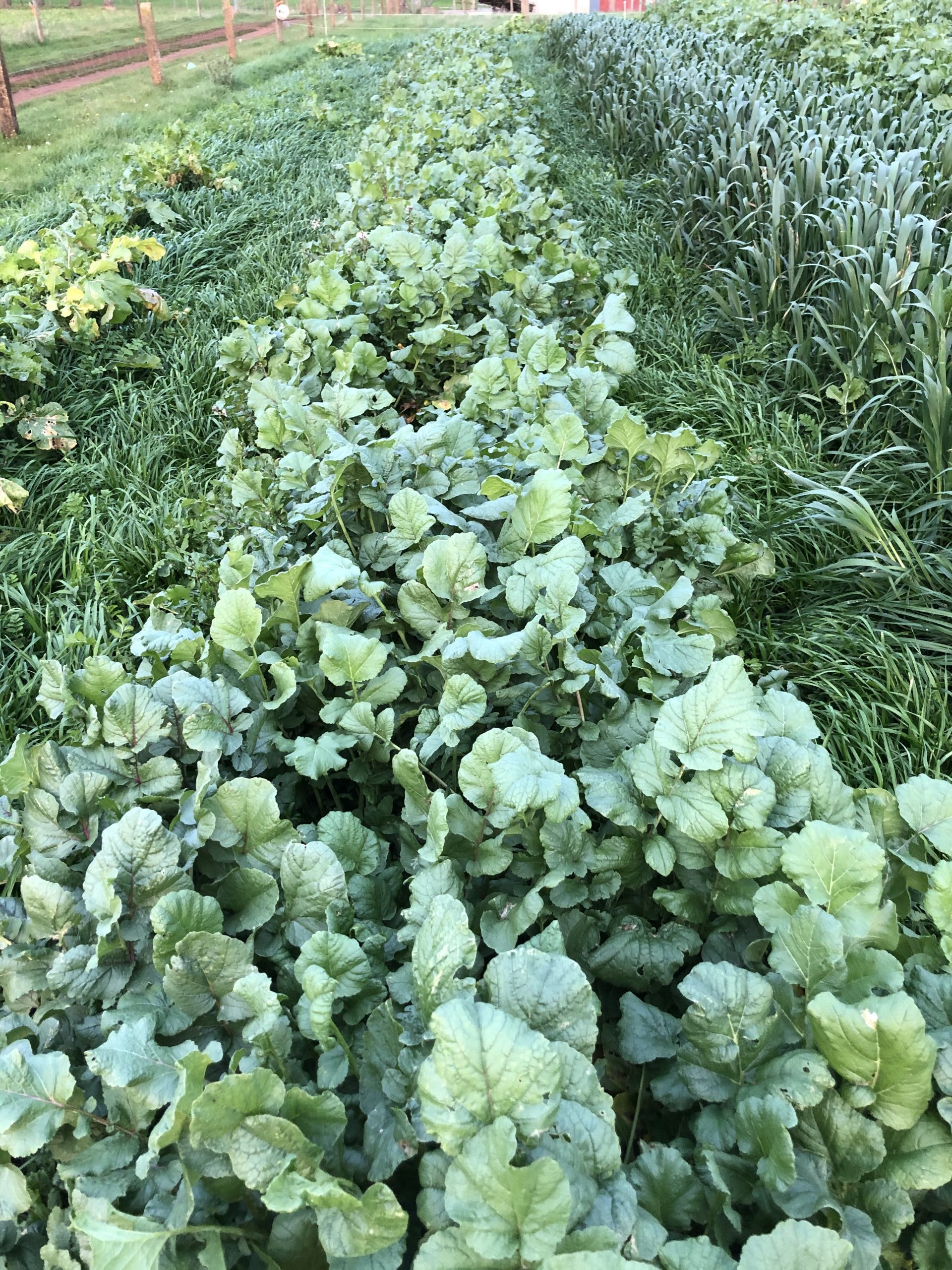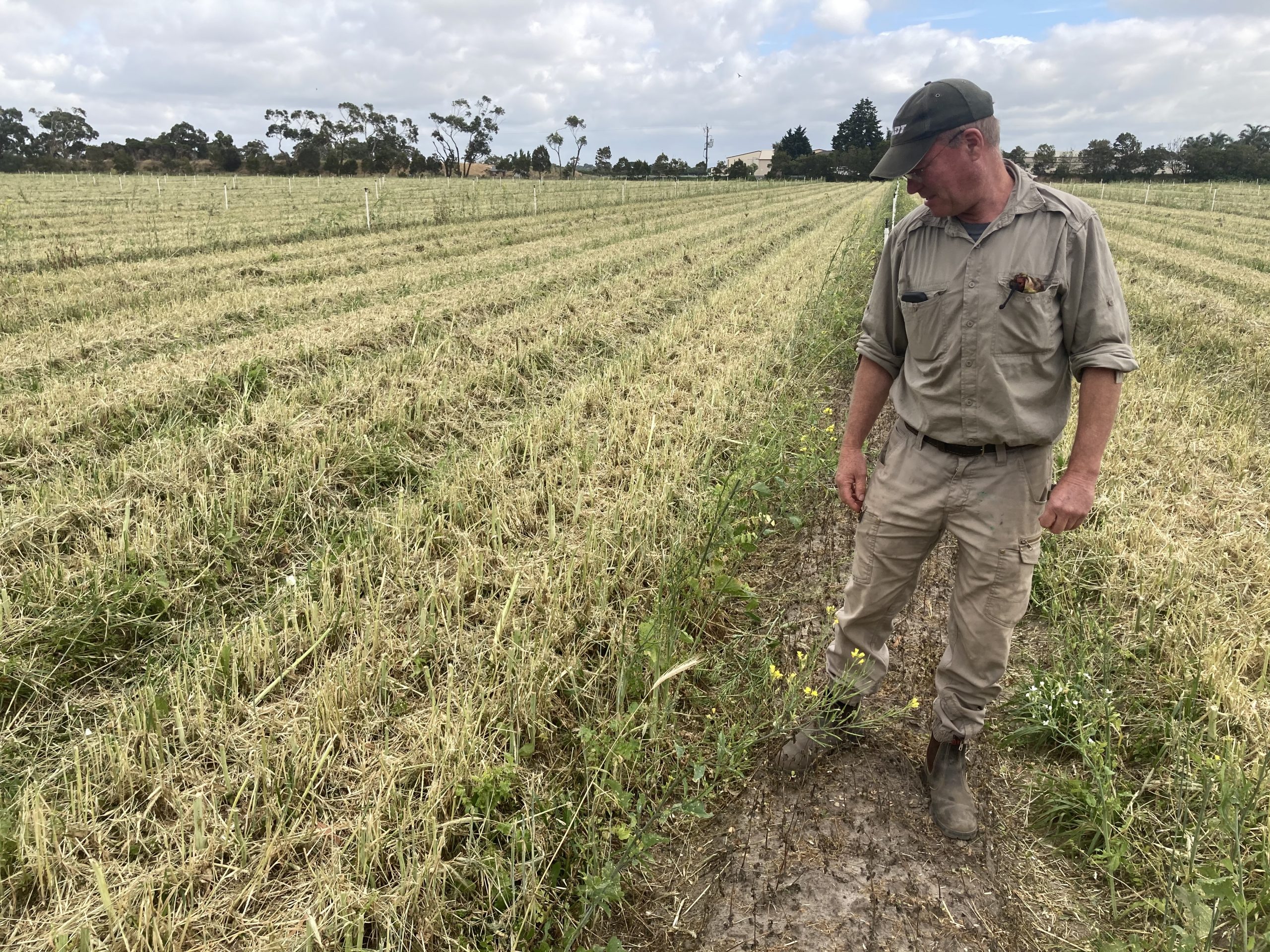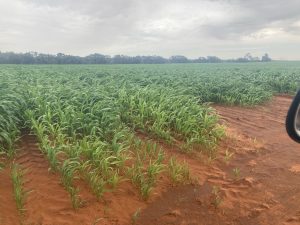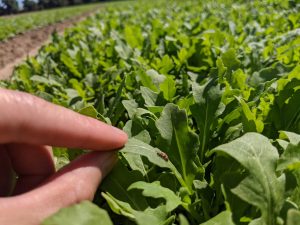
Protecting vegetable crops against extreme heat conditions
22 February 2021
VegNET – Tasmania update: Cover crops in-focus
22 February 2021With a difficult year in Victoria now behind us, the VegNET team has been able to return to a state of normality. Late last year we visited several growers throughout the state’s northern, western and south-eastern regions to provide updates on recent projects, discuss gaps in R&D, and find out what had been going on over the various lockdowns. Each region differs significantly in the crops that are grown, along with environmental factors and production issues.
Northern region
Throughout Victoria’s northern region, production quietens down over the warmer months and the majority of vegetable crops are replaced with cover crops. When we visited the region late last year, we managed to catch the last of the season’s rocket and baby spinach, as well as some pumpkin crops that were starting to become established for the summer ahead. Cover crops were starting to take over large sections of farms, especially those that grow salad crops throughout the cooler months. Cover crops are planted with the intention of protecting the soil over summer and increasing soil organic matter.
Sorghum is a popular cover crop for many throughout the region with its high biomass, in both roots and foliage, making it rich in organic matter and relatively hardy to the harsh conditions seen throughout the summer months. Summer cover crops, and cover crops in general, also have the ability to assist in addressing a number of production issues. They can capture and store nitrogen to prevent leaching or loss to the air, recycle nutrients that are deep in the soil, and aid in suppressing pests, weeds and diseases. For further information about summer cover crops, check out the fact sheet ‘Summer cover crops – Tools for soil management’.
Western region
Pest management is an ongoing for issue for growers around the country, especially in intensive production systems. While visiting growers in Victoria’s western region, we chatted all things Integrated Pest Management (IPM) and its benefits in vegetable production systems. Digging around salad crops in Bacchus Marsh, we found a number of beneficial insects that will aid in protecting the crops against influxes of pest species in the future. Many growers throughout the region have adopted IPM programs over the years with high levels of success.
Implementing an IPM program on-farm can sometimes seem like a daunting task, especially when moving from a conventional insecticide program. However, implementation of IPM on-farm can result in reduced reliance on chemical sprays, reduced likelihood of resistance, and greater control of insect pests. For more IPM information, check out the following resource ‘Implementing IPM on farm – Experiences from leading growers’.
South-eastern region
Combating nutgrass remains a big issue for many vegetable growers throughout Victoria’s south-east. Although there are a number of control methods available, these consist of hand weeding, chemical control (predominantly glyphosate) as well as increased biosecurity. When we caught up with Mark Schreurs from Peter Schreurs & Sons last year, he showed us one of the ways of trying to combat the invasive weed. Mark has been trialling a mixed species cover crop on one of his blocks to try to out-compete the grass and suppress its lifecycle. While his trials are still in their early stages, he is seeing promising results from the nine species cover crop.
Keeping on top of nutgrass is one of the most important things to remember when an incursion arrives. Once it becomes established within a production system, it can be particularly hard to remove. To gain a better understanding of how to control this invasive weed, have a look at ‘Integrated weed management fact sheet – nutgrass’.
Additionally, late last year we ran a webinar looking at the use of soil moisture technology to influence irrigation practices throughout Victoria. The recording of the event can be viewed here: ‘Managing irrigation requirements over the Victorian summer using soil moisture technology’.
Find out more
Please contact VegNET – Victoria Regional Development Officer Dimi Kyriakou on 0488 124 626 or email dimik@rmcg.com.au.
VegNET – Victoria (South-East, West and Northern Regions) is a strategic levy investment under the Hort Innovation Vegetable Fund.
This project has been funded by Hort Innovation using the vegetable research and development levy and contributions from the Australian Government.
Project Number: VG19012
Cover image: Mixed species cover crop.



